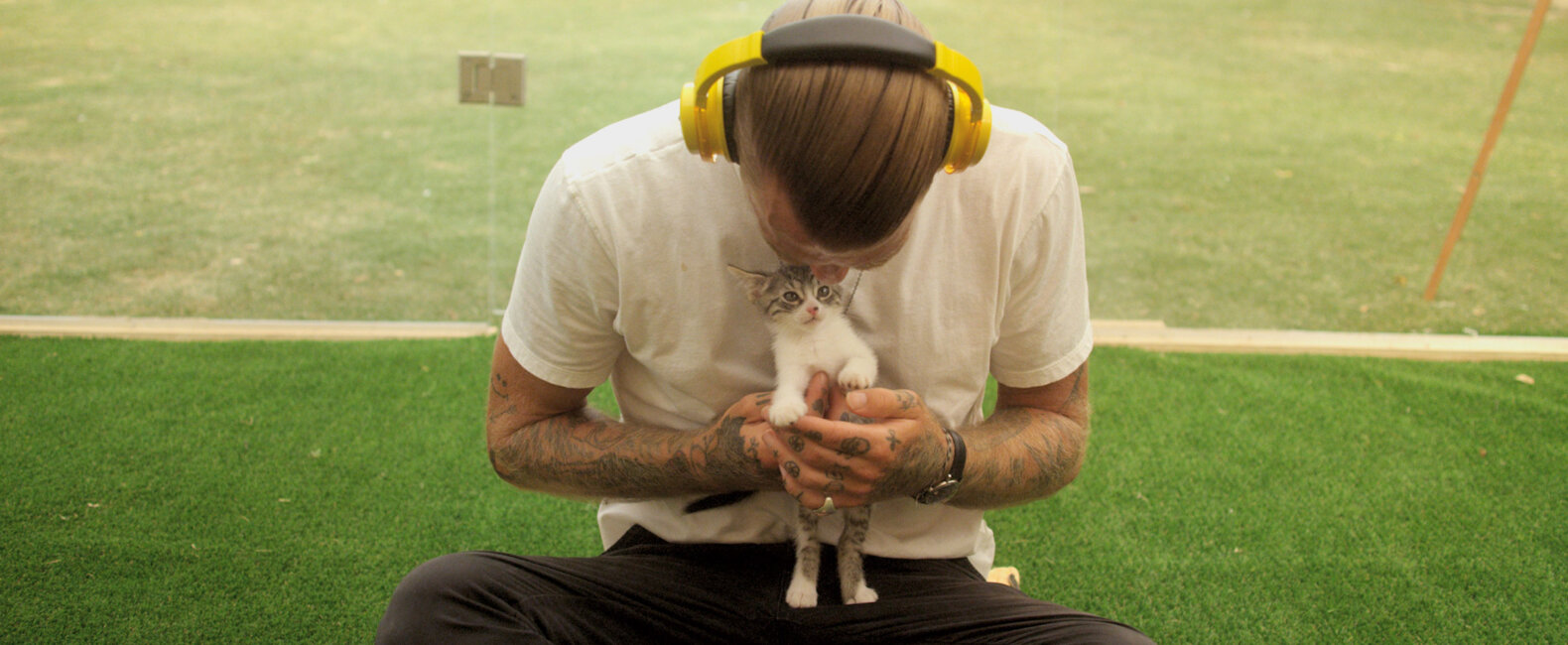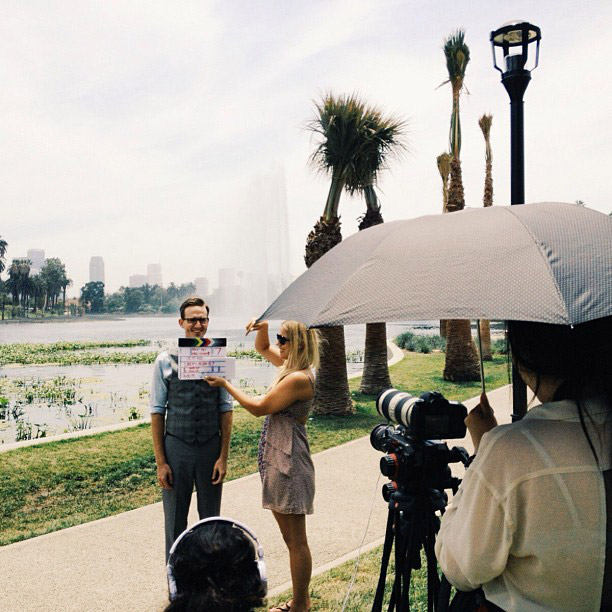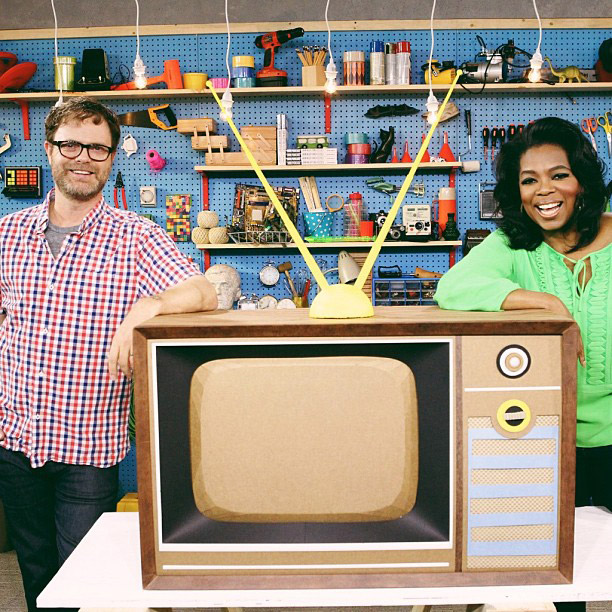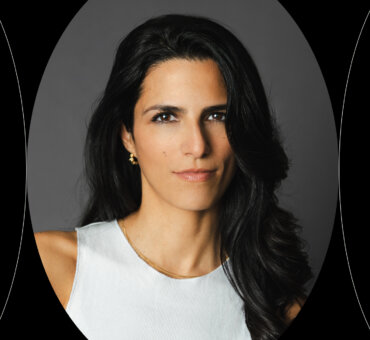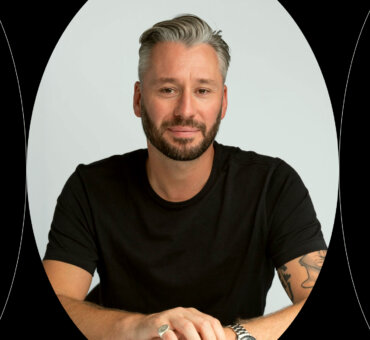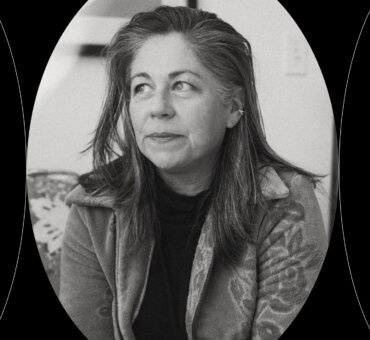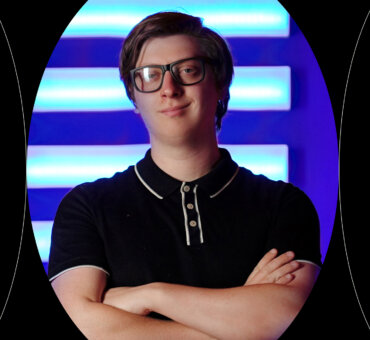For years now, the name “SoulPancake” has been floating around the Internet, attached to unapologetically feel-good (and unstoppably viral) videos like Kid President, Kitten Therapy,and Heart Attack!, as well as disarmingly philosophical series like Metaphysical Milkshake.Yeah, we’d heard of SoulPancake. But for a long time we weren’t exactly sure what SoulPancake was. A creative agency? A Rainn Wilson side project? A, for lack of a better term, movement?
Well, sort of yes to all three. “I think we all had this belief that people were thirsty for meaningful content,” Golriz Lucina, SoulPancake’s creative director, told us about the origins of the company. “We believed the Internet could be a place where you come away feeling better for it, not worse.”
SoulPancake is SoulPancake. A self-defining, ragtag group of creatives committed to engaging the deepest questions humankind has ever asked, through one of the most vapid mediums humankind has ever created. It’s working, and some of the world’s biggest, most powerful brands are noticing.
Here’s our conversation with Golriz Lucina.
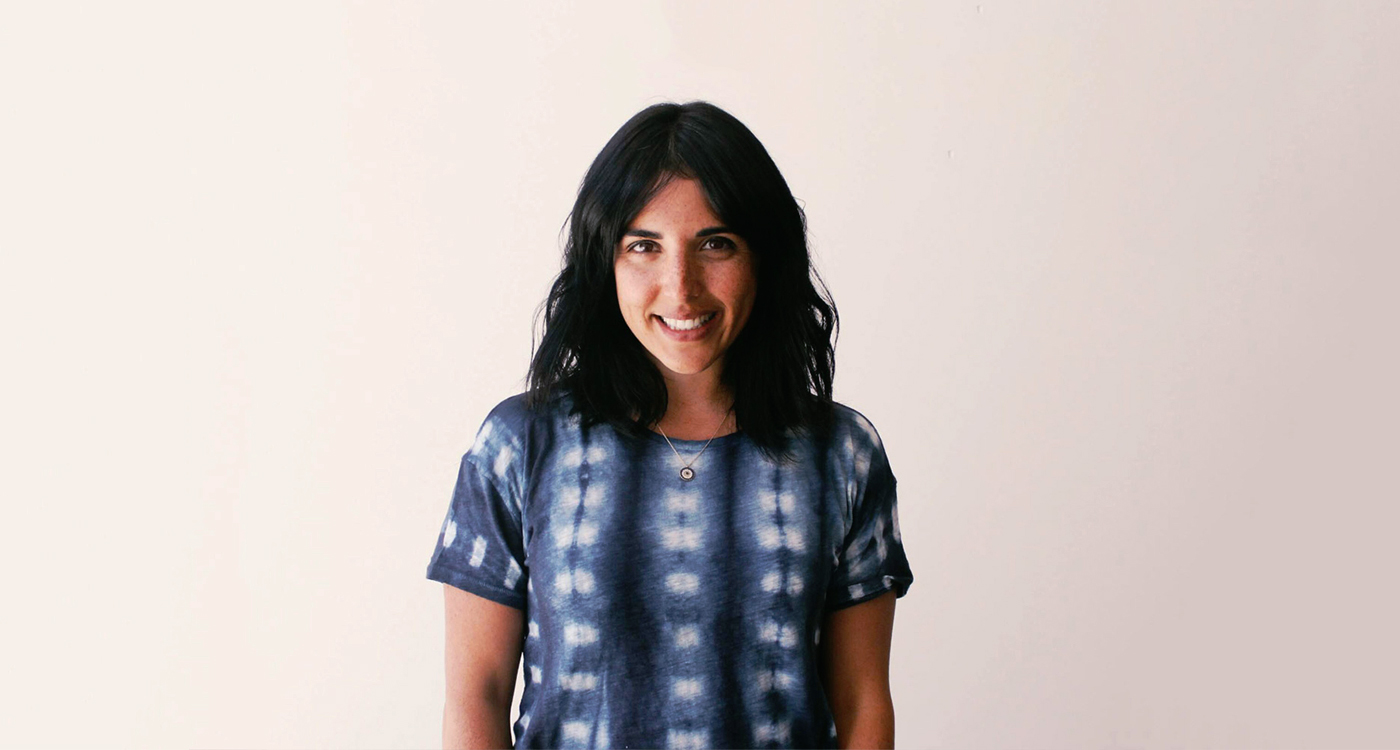
Do you have regular kitten parties at SoulPancake?
We do have spontaneous dance and cupcake parties. Usually we save them for Fridays when we have our staff meeting and give out the Badass of the Week Award. It’s a karate trophy I found at a thrift store. This guy is doing a high kick in the air. I think I paid $3 for it. Whoever is the Badass of the Week gets to put it on his or her desk. Then we eat cupcakes.
You got your master’s in editing and publishing. Have you always been a storyteller?
Since I was a little kid, I knew I wanted to be involved in an artistic field. I did theater and drama and music. My parents forced me into violin and piano. Plus dance, art classes, photography. Oh, and wood whittling. I also loved great stories, but I’d watch movies and feel like they missed the best part. “She wanted to fall in love, then she fell in love, then she got married,” and then the movie ends. I wanted to know what happened next: the real hard work of life.
What jobs did you have before SoulPancake?
For a brief while, I was a radio DJ in a town in New Zealand called Timaru. I was on in the middle of the night when nobody but truck drivers were listening.
What kind of stuff did you play?
I played all the terrible 90’s hits. Like Ricky Martin.
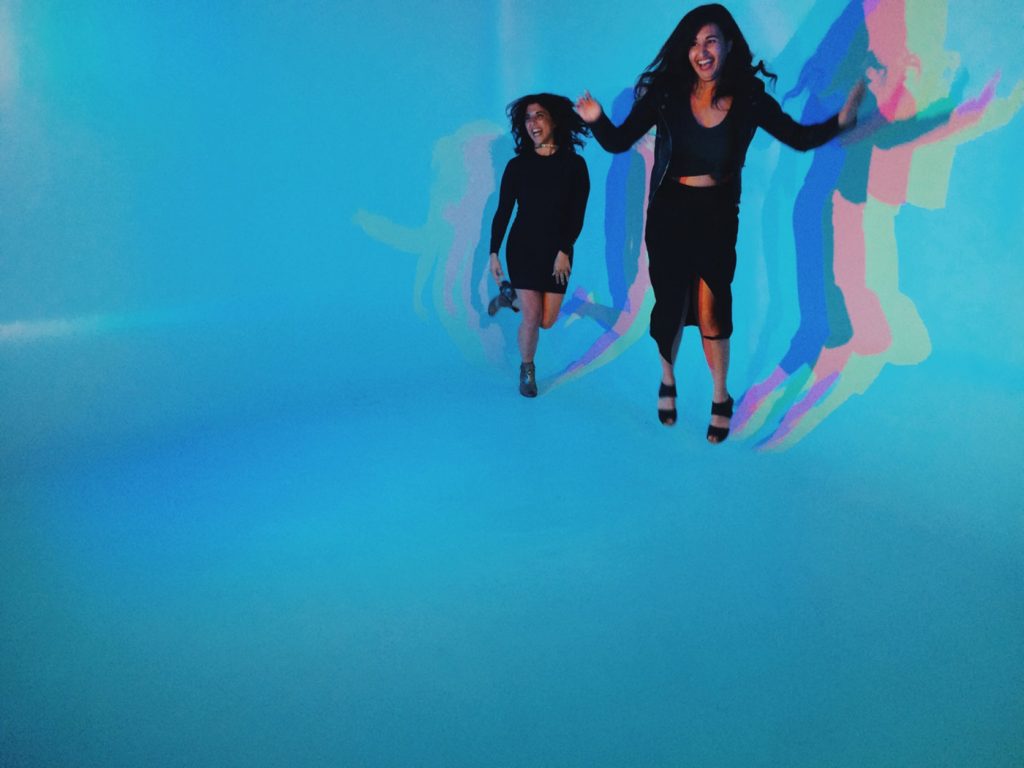
That’s awful. How did you end up at SoulPancake?
Through a series of crazy life events, I ended up in Nashville after my first marriage ended. Of all the places on my list of places to live, the South in the United States was on the lowest part of the list. But instead of Eat, Pray, Lov-ing my way out of there, I stayed in Nashville and got a job with CAA, a talent management firm. I then ended up becoming the marketing manager at the Tennessee Performing Arts Center, which I loved. At the time they were taking a more traditional approach to marketing, taking out newspaper ads or doing radio spots. But I really wanted to expand into marketing over social platforms and I started realizing I had some skills in creative marketing. Around that time, I met Devon.
Devon?
Devon [Gundry] and Rainn [Wilson] founded SoulPancake along with another friend, Josh [Homnick]. Rainn was on The Office, and he was becoming well-known for his character, Dwight. He wanted to do something purposeful with his fame. And at the time — this was 2007 — he felt the Internet was a pretty grimy place. Like, yes, there were cats on skateboards and all, but a lot of the chatter was mundane, and it would quickly devolve into people being horrible to each other.
Rainn posed the idea of creating a space where people — young people, especially — could question what it means to be spiritual or creative, and have conversations about philosophy. He recognized that back in the day, Plato and Socrates were these badasses who got to talk about what it means to be here and what the point of all this is. But now if you go up to somebody at a party and you’re like, “What do you think happens when we die?” that’s a bit of a conversation killer. We don’t really have conversations about stuff like that anymore. But we all think about it and wrestle with it in private.
Rainn wanted to start SoulPancake as an interactive website, but he had no clue how to do it. Devon is a web developer and engineer, so they teamed up.
I met Devon through Facebook, which is like the least romantic way of meeting someone. But we ended up becoming best friends, and now he’s my husband. So I always say I married into SoulPancake.

What did you think of SoulPancake at the beginning?
At the beginning I kept hearing Dev talk about this project he was doing with some celebrity out in L.A.; and to me, it sounded ridiculous. I mean, it’s called SoulPancake. I didn’t think anybody was going to make any money off it. I didn’t understand it. But I started getting involved because they needed content and visuals for the site. I started writing stuff and coming up with imagery to post, and pretty soon I realized that this passion project was a lot more satisfying for me than my full-time job.
In early 2009, the site went live. Rainn is friends with Oprah, and she was one of the first big influencers to publicize it, which was so helpful. We had a lot of registered users in those first months. So in May of 2009, I took a leap of faith and joined SoulPancake full time. I’ve been here ever since, and it’s grown by leaps and bounds. I have a lot of pride because I feel like this is a ‘baby’ that we have raised.
Why do you think SoulPancake was needed?
I think we all had this feeling that people were thirsty for meaningful content. We believed the Internet could be a place where you come away feeling better for it, not worse. A community quickly rallied around that kind of content. They were consuming it, sharing it, asking for more of it. We weren’t making any money, but we were getting emails like, “I saw this SoulPancake thing that made me re-evaluate how I was treating my dad.” It was impacting people in profound ways. And that’s really what we were after. We aren’t just another agile production company. At our core, we’re really a mission-driven company. It’s a double bottom line: We’re making money, but we’re also sticking close to our mission.
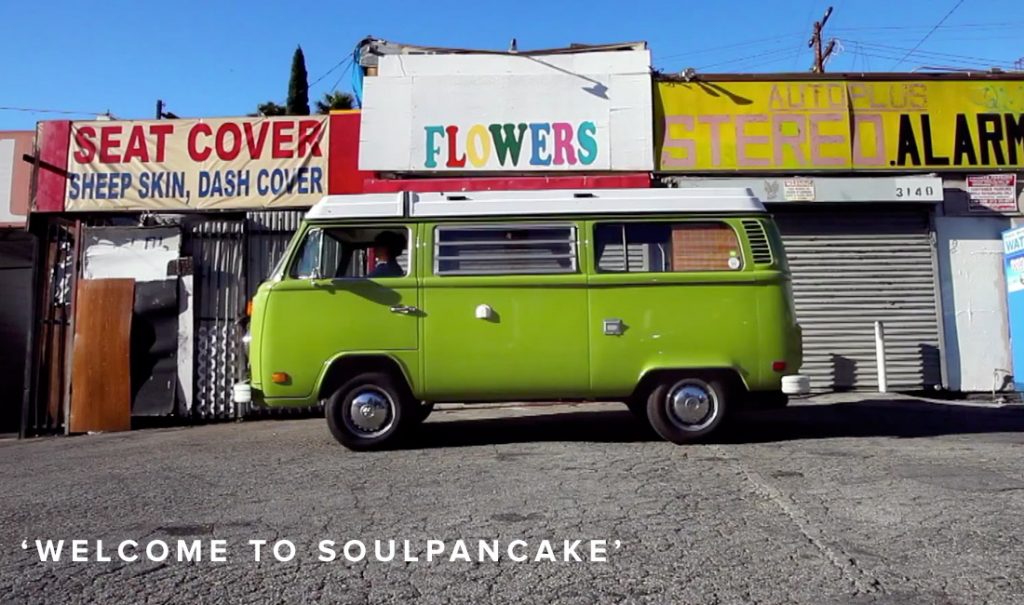
What’s the mission?
The mission, really, is to open hearts and minds. To get people digging into what it means to be human. We’re having fun with it, just wrestling with this crazy journey we’re all on and realizing we’re in this together. No one has the answers. We’re about celebrating the questions. We’re just about human beings having real experiences and creating content that will result in elevated discussions. And I think as a society, we’re all craving that. We’re getting more interconnected with our technologies, but we’re also feeling more isolated.
I think what people feel primarily from our content, and resonate with, is authenticity. Apart from a few scripted shows, the majority of our content is unscripted. We manage to capture these authentic, candid experiences — even in L.A. where everyone is sick of seeing cameras around. And I think that’s what our viewers connect with. The Kitten Therapy spot that I directed a few months ago has been shared more than 7.5 million times because people actually felt something from it. They felt a sense of joy. And I think that feeling of pervasive joy is the key to a lot of our successful content.
Is SoulPancake, as a brand, something you guys try to fulfill? Or is it the result of you guys just being yourselves?
It’s so amazing that you ask that. All the content you see from SoulPancake is a direct translation of all the people who create at SoulPancake. The people on our team are some of the biggest-hearted, most creative, dedicated people in the world. Part of that is because SoulPancake is a young start up, so our staff didn’t take the jobs just for the paycheck. They joined because they believed in the mission of the company. And now, even though we’re at a place where we can pay people a little better, nobody is sticking around for the paycheck. We work long hours and we ask a lot from our team. So if you work at SoulPancake, you do it because you love what we do. Your heart has to be in it.
Also, the DNA of our founders is so much a part of our content. Devon is one of the most eccentric, creative, joyful people alive. His doctor actually told him he has a thing called hypomania, where he’s just happy all the time. It’s true. And it’s kind of annoying. But his DNA has been in SoulPancake from the beginning. I feel the same way about Rainn. Rainn is incredibly astute and talented. He’s funny, charismatic and honest. He just gets it. The sinews of who we are as humans comes through in our content for sure.
Honestly, the times we’ve failed — the times when we put out content that hasn’t done well — it’s because it hasn’t felt true to who we are. As the creative director, that’s my biggest responsibility: making sure the projects we bring to life are right for our brand. I have to say, “Look, this is who we are and what we stand for. If our mission is not going to be a throughline then we’re probably not the right partner for you.” It’s hard because there are instances where we are walking away from big accounts; but if we dilute our voice, then we’re just another production company.
Sometimes I get worried that people on the Internet only respond to the worst, most surface-level content. But that doesn’t seem to have been your experience with SoulPancake.
I’ve been really encouraged by what people respond to. I once heard a quote that I can’t perfectly remember right now, but it’s something like, “Make the stuff you want to see. Make the stuff you feel is missing.” When you do that, when you love what you’re putting out there, other people similar to you will find it and share it and get behind it. And that’s been encouraging for us. Because while maybe the masses aren’t into it, we’ve found this giant tribe of people who are.
When we were a younger company, we used to pitch TV shows; and the networks would be like, “That feels too “feel-good.” But there’s something to be said for people wanting to feel good. Oprah actually called SoulPancake content “little pieces of light.” And to me, that’s who we are. It’s a dark, dusty, messy world in media right now; but if we can be like little pieces of light, then I’ve done my job. And anyway, that’s the kind of stuff I want to see.
What’s the best piece of advice you’ve ever been given?
{Laughs}. I’m trying to think of anyone who has given us advice that we’ve actually heeded. I often feel like we’re a fish swimming against the stream. The advice is usually to dumb down our content, be a little less honest, not be as fixated on high quality. But what I’ve learned is that, as a creator, you have to figure out what your voice is. Figure out what you’re here to create. There’s something very magnetic about a brand acting from their honest, authentic core.
We’ve have yet to make outbound calls to find business. I think one of the proudest moments was when we got a call from Disney saying they love how SoulPancake content makes people feel, and they wanted us to partner with them on creating content around an app they were releasing. It was just like, wait, Disney — the kings of making people feel great — wants to join forces and make something?! I think it says a lot. We’ve found our niche in creating heart-opening, joyful content that makes people excited about being alive, and we’re unapologetic about it.

Golriz and SoulPancake give us hope for the future of the Internet. And so: the future of the world. There is an audience out there that is hungry for positive, honest, and deep content. The Internet can be a good place after all. For a while we weren’t so sure. And we think Golriz is absolutely right: there is something irresistible about someone acting from their honest, authentic core. If that’s not where we’re creating from, then why are we creating at all?















































































